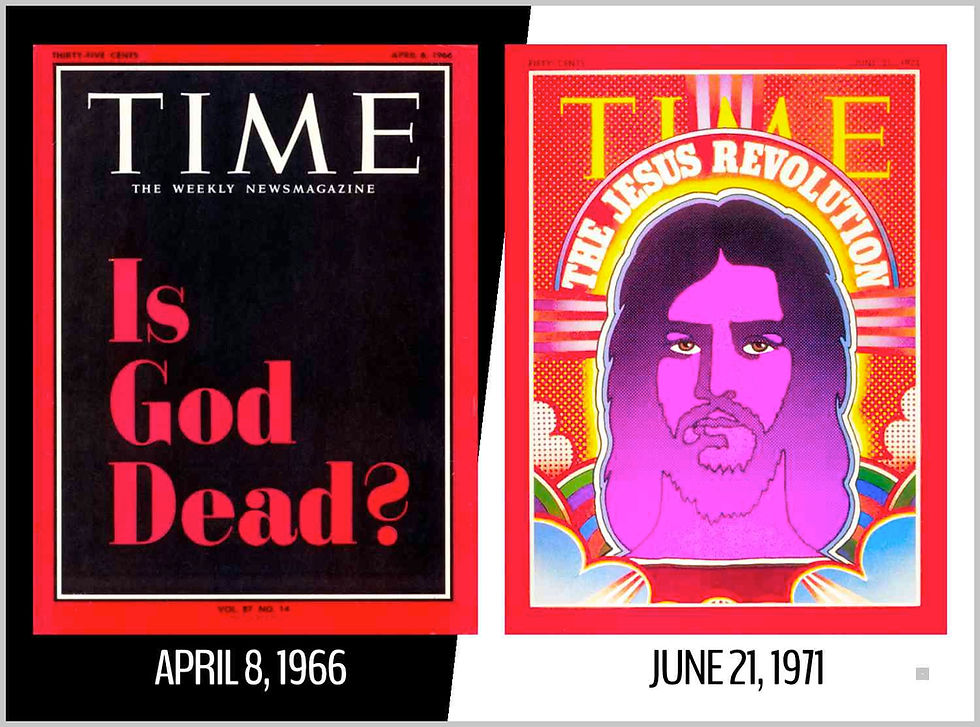Extremists in the Danger Zones
- Nov 6, 2024
- 3 min read

Christians often seem to view life in tight binary ways, suspicious of nuance or grey.
How that plays out in our interactions with other carbon-based bipeds is where we can get into trouble: the Danger Zones are in the extremes of separatism and conformity.

The extreme on the right is where no one can tell any marked difference between believers and unbelievers. Behaviors and world-views are not that disparate, and not just about things we shouldn’t do, but about what we express we’re interested in. The conformist totally fits into the culture without ever challenging it. Not just blending in, but indistinguishable.
The separatists are the other extreme. These extremists want to withdraw as much as possible from society. In these evangelical ghettoes, they have their own TV stations, their own bookstores, their own fitness clubs, their own schools, their own neighborhoods, their own restaurants, and so on. Even more extreme, mainstream media is bad and so they burn everything that sniffs of anything to do with “the world”.
The answer to both forms of extremism is not compromise; no one should compromise deeply held values or simple truths. But there is a third option: the way of love. And love is always missional in practice.
The driving force for missional relevance is simply love. Paul’s poem in the opening salvo of Philippians 2 is a master argument for missional relevancy.
Though he was in the form of God, he did not count equality with God a thing to be grasped, but emptied himself, by taking the form of a servant being born in the likeness of men. And being found in human form, he humbled himself by becoming obedient to the point of death, even death on a cross. PHILIPPIANS 2:6-8
God fleshed out compassion. Top this: try having all the power of the universe and enter this dustball of a planet as an ethnically disadvantaged baby born on the wrong side of the tracks. Try having your first bed be a feeding trough for farm animals. Try blank-slating your own mind and then learning discipline by submissive suffering. Try forgiving those who nail you to a hewn tree that you originally created.
In our context, relevance is rooted in love and a simple willingness to sacrifice whatever it takes to show God’s love to others, to incarnate Jesus in someone else’s world.
Once again, our mentor Paul put it like this:
When I am with the Jews, I become one of them so that I can bring them to Christ. When I am with those who follow the Jewish laws, I do the same, even though I am not subject to the law, so that I can bring them to Christ. When I am with the Gentiles who do not have the Jewish law, I fit in with them as much as I can. In this way, I gain their confidence and bring them to Christ. But I do not discard the law of God; I obey the law of Christ. When I am with those who are oppressed, I share their oppression so that I might bring them to Christ. Yes, I try to find common ground with everyone so that I might bring them to Christ. 1 CORINTHIANS 9:20-22
When love becomes the driver behind why we exist as churches, extremism softens exponentially. The Church’s missional calling demands that we take a hard look at contexts and answer the classic question: If our church shut down tomorrow, would anyone notice?
Dave Workman | The Elemental Group
How self-aware is your organization? The Elemental Churches Inventory guides your leadership team through a multi-faceted review of strengths and opportunities in four critical elements of your church’s life: Integrity (systems, processes, infrastructure), Passion (commitment to the mission), Servanthood (outward-focus), and Imagination (innovation, openness to change). And because of its unique web-based and curriculum approach, it’s a third of the cost of typical consulting! See for yourself here.




Comments